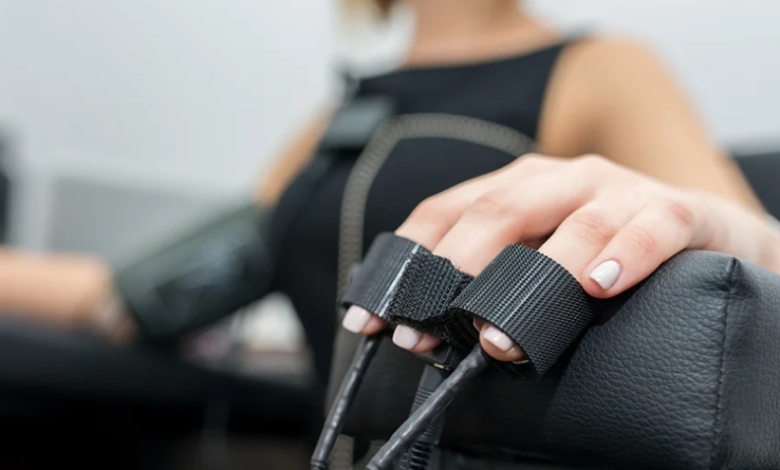Lie Detection in Alabama: The Purpose, Use, and Limitations of Polygraph Tests

Polygraph tests, also known as lie detector tests, are investigative tools used to measure a person’s physiological responses while answering a series of questions to determine truthfulness. These tests record indicators such as heart rate, blood pressure, respiration, and skin conductivity to detect signs of stress that are believed to occur when someone is being deceptive. polygraph in Alabama tests are used in various settings, including law enforcement investigations, certain employment screenings, and internal security checks. However, like in most states, the legal system in Alabama approaches the polygraph with caution due to concerns about reliability and admissibility. While a polygraph is often viewed by the public as a definitive tool for exposing lies, experts agree that it should be used as a supportive technique rather than definitive evidence. Understanding the legal framework, accuracy concerns, and practical application of polygraph testing in Alabama can help demystify this commonly misunderstood process.
How Polygraph Tests Are Conducted
A polygraph examination in Alabama typically involves three main phases: the pre-test, the test itself, and the post-test analysis. In the pre-test phase, the examiner discusses the procedure with the subject, establishes a rapport, and formulates the questions that will be asked. The subject is then connected to the polygraph machine through sensors that track physiological indicators. The examiner asks a mix of irrelevant (neutral), control (baseline), and relevant (case-specific) questions. The physiological data collected during the test is then analyzed to identify patterns that may indicate deception. In Alabama, polygraph examiners must be trained and licensed, and their work is regulated to ensure professionalism and consistency. Despite the advanced equipment and structured process, the test’s effectiveness still depends heavily on the examiner’s skill and the subject’s mental and emotional state, which introduces variability into the results.
Legal and Employment Use of Polygraph Testing in Alabama
In Alabama, the use of polygraph tests is regulated by both federal and state laws. The federal Employee Polygraph Protection Act (EPPA) prohibits most private employers from using lie detector tests for hiring or during employment, with exceptions for certain sensitive jobs in security, law enforcement, and positions involving controlled substances. Alabama follows these federal guidelines and permits polygraph use in specific employment sectors where security and trust are critical. Law enforcement agencies in Alabama, such as police departments and corrections facilities, often use polygraph tests during the hiring process as part of background checks. While applicants may refuse the test, doing so can affect their eligibility for certain roles. In criminal investigations, polygraph tests may be used by police departments to gather additional information or assess the credibility of suspects and witnesses. However, Alabama courts generally do not allow polygraph results as admissible evidence unless both the defense and prosecution agree in advance, which is rare due to ongoing concerns about scientific validity.
Reliability and Controversy Surrounding Polygraph Tests
One of the most debated aspects of polygraph testing is its reliability. Supporters argue that a properly administered test by a skilled examiner can achieve accuracy rates between 80% and 90%. However, critics point out that polygraph machines do not detect lies directly; instead, they measure physical responses that can be influenced by many factors such as anxiety, fear, or even medical conditions. A truthful person might react nervously and trigger a false positive, while a deceptive person who remains calm may pass the test. This ambiguity has led to widespread criticism from the scientific community and skepticism within the legal system. In Alabama, like in most states, polygraph results are considered investigative tools rather than definitive proof. They may help guide investigators or prompt further questioning, but they are not seen as conclusive evidence of guilt or innocence.
See also: Comparing Short-Term vs Long-Term Expat Health Insurance Solutions
The Future of Lie Detection in Alabama
Although polygraph testing continues to play a role in law enforcement and limited employment contexts in Alabama, new technologies are being explored as potential alternatives. Researchers are investigating brain imaging, voice stress analysis, and artificial intelligence-driven behavior analysis as more objective means of detecting deception. While these methods are still under development and not yet widely implemented, they reflect a broader interest in finding more accurate and scientifically valid ways to verify truthfulness. Until such innovations become reliable and accessible, the polygraph will likely remain a secondary tool used in conjunction with other investigative methods. In Alabama, individuals asked to take a polygraph should understand their rights, the limitations of the technology, and the purpose of the test in their specific situation. Despite its limitations, the polygraph remains an established part of Alabama’s investigative landscape, valued for its ability to support—but not replace—thorough investigative work.
Location in Alabama
- Montgomery – 445 Dexter Ave suite 4050, Montgomery, AL 36104, United States
- Birmingham – 2100 Southbridge Pkwy Suite 650, Birmingham, AL 35209, United States
- Mobile – 11 N Water St 10th Floor, Mobile, AL 36602, United States




